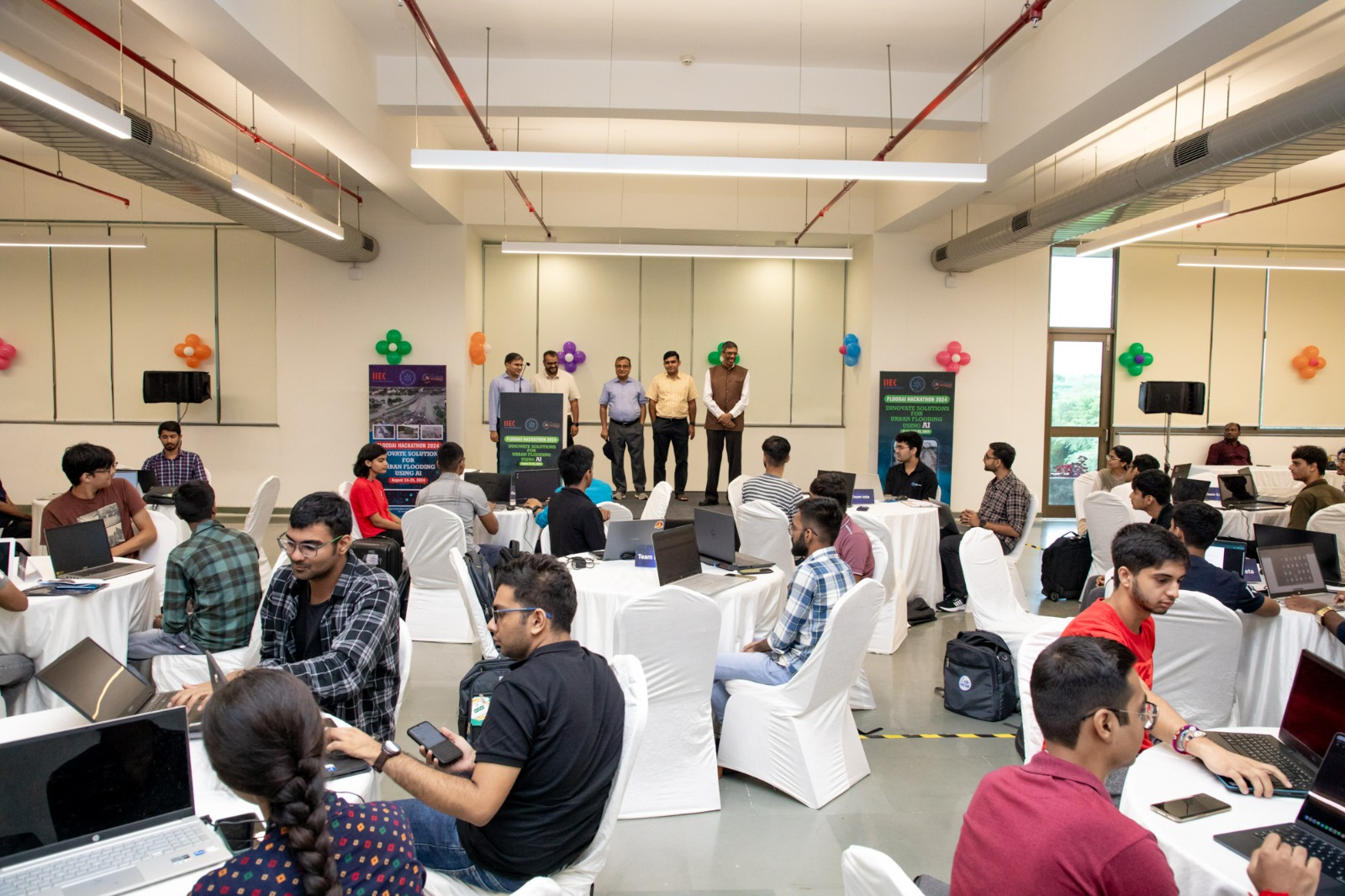IIT GN’s FloodAI Hackathon 2024, Innovating Solutions for Urban FloodingGandhinagar, Aug 25, Innovation and Entrepreneurship Center (IIEC) IIT Gandhinagar, in association with the Climate Studies Department at IIT Bombay, is excited to share the success of the FloodAI Hackathon 2024, an event specially designed to tackle the pressing global challenge of urban flooding.
According to a press release issued by IIT GN here today Organised by IIT Gandhinagar, this hackathon provides a one-of-a-kind platform for students and innovators to develop cutting-edge solutions to reduce the impact of urban floods—a major issue that’s becoming increasingly critical in cities around the world.
From a whopping 160+ applications received from across the country, we’ve carefully selected 60 participants and split them into 11 teams. These bright minds have been burning the midnight oil to come up with innovative solutions to this urgent problem.
The hackathon kicked off on 24th August at 0900 AM and is running full steam ahead until 0100 PM on 25th August at the Research Park. The event will wrap up with a series of presentations, where the teams will showcase their brilliant ideas to a distinguished jury panel from 2:00 to 5:00 PM. The grand award ceremony, where we’ll be celebrating the best of the best, is set for 5:30 PM on 25th August.
Prof. Rajat Moona, Director of IIT Gandhinagar, inaugurated the event on 24th August 2024, highlighting the crucial need for actionable solutions to urban flooding. His words have set the perfect tone for a hackathon that’s all about delivering impactful results.
Now, drumroll please, here are the winners of this year’s FloodAI Hackathon: 1Lakh First Prize to Team Kappa:Hima Soni, Patel Yash,Manan Suri, Haran Shingala, Pranjal.
60K Second Prize to Team Theta: Raviraj Dave, Mayank Kashyap, Mannat Gayal.
40K Third Prize to Team Epsion: Dhruv Sharma, Deep Mathukiya, Harsh Rajput, Prajas kulkarni.
“We’ve come up with a comprehensive flood detection system that doesn’t just identify potential flooding but also analyses its impact and explores ways to mitigate its effects on affected areas. Our approach zeroed in on three key parameters: first, identifying the probability of a flood; second, forecasting the depth of waterlogging; and third, estimating how long the flood might last. We’re aiming to deliver an end-to-end solution and are eagerly looking for opportunities to take this project all the way to deployment,” said Hima Soni from the first prize-winning team.
“We focused on three critical areas because we know how vulnerable our cities are to flooding. We developed an AI/ML-based solution to tackle this issue. Even though we were all knackered by the end, it was a brilliant experience,” added Raviraj Dave from the second prize-winning Team .

